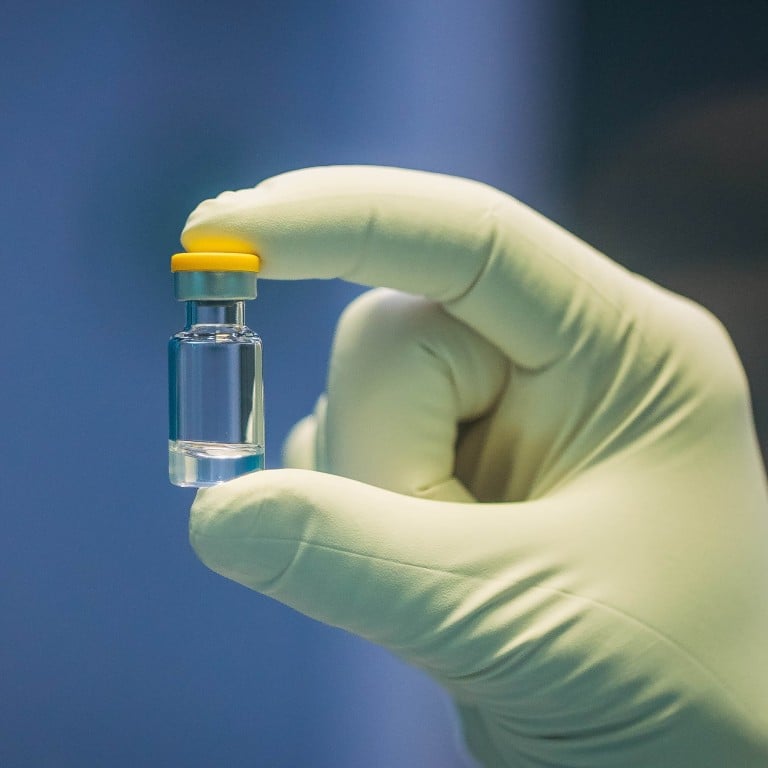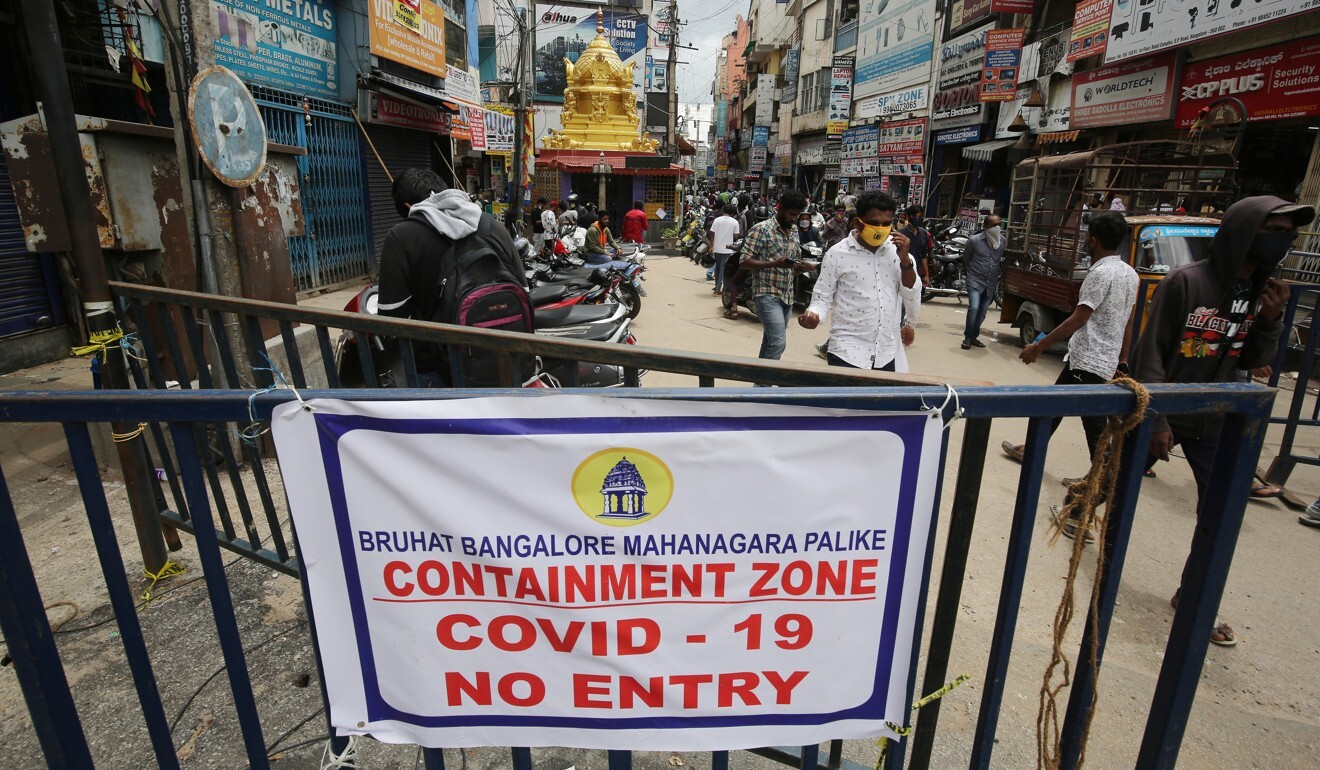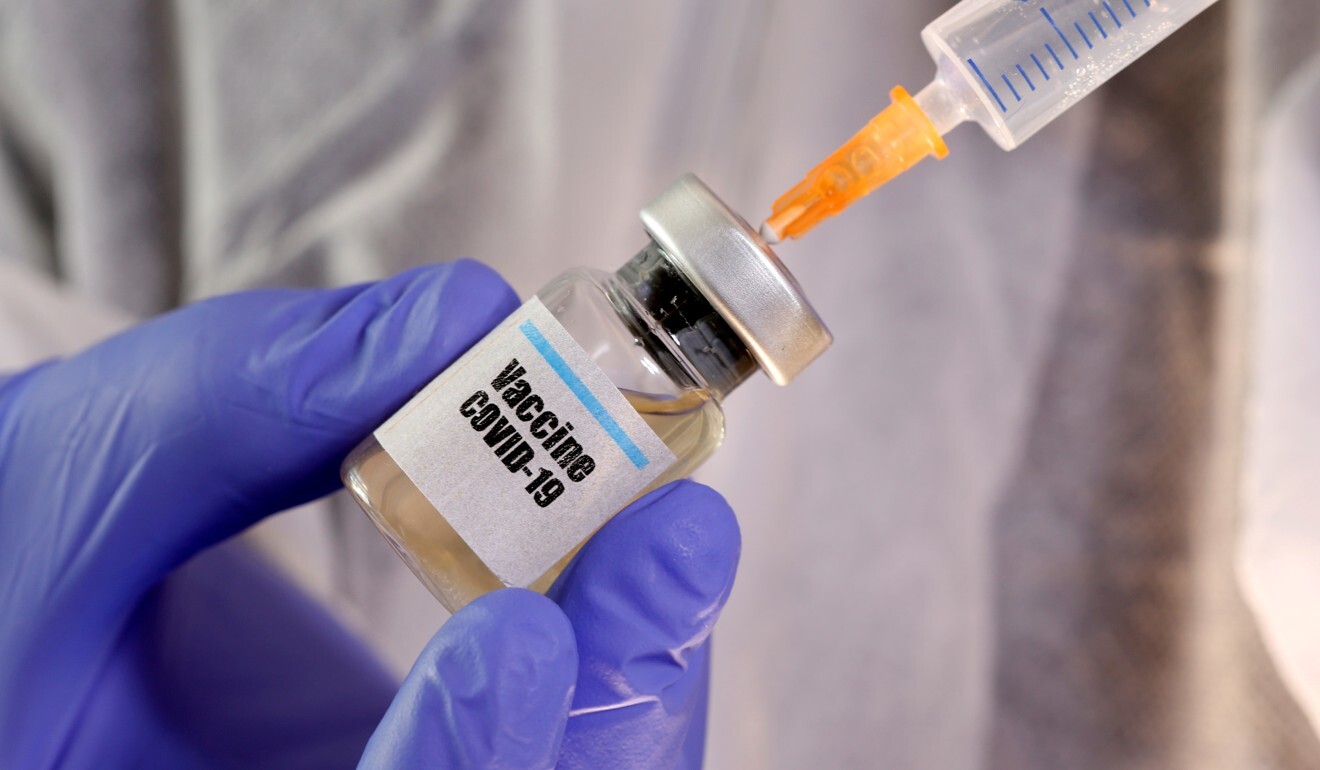
Is India’s rush for a coronavirus vaccine being driven by national pride and China tensions?
- Indian officials gave a five-week deadline for the first Covid-19 vaccine trial, aiming to have it ready by independence day on August 15
- Amid increased protectionism and a record surge in cases, health experts warn political pressure is affecting the race to develop a home-grown vaccine
Human trials of Covaxin have started at most of the 12 shortlisted vaccine testing sites across India, with 100 people so far being administered doses. About 1,100 people are expected to participate in the two phases of the trial, which will examine safety, dosage levels and immunogenicity. However, there is no clarity on a concrete timeline.
“In the first 100 individuals, we haven’t encountered safety concerns and these results are encouraging. This is a good indication of the safety of the vaccine candidate and in three more weeks we will know whether this could be successful against Covid-19,” said Dr Savita Verma, who leads the clinical trials in Haryana.
But another supervising doctor at a facility in South India, who declined to be identified, said there was “implicit pressure” from government organisations to hasten the process.

In a letter dated July 2, Balram Bhargava, head of the government-funded Indian Council of Medical Research (ICMR), wrote: “It is envisaged to launch the vaccine for public health use latest by August 15 after completion of all clinical trials.”
The letter, leaked to local media, warned the shortlisted medical institutions that “non-compliance will be viewed very seriously”.
The five-week deadline for vaccine trials left the Indian medical community up in arms.
This came after the World Health Organisation said the vaccine’s trials could take six to nine months, and the Ministry of Science and Technology said in a media release earlier in July that none of the vaccine candidates were likely to be ready for public use before next year. The ministry later deleted that sentence.
The federal health ministry clarified that the letter was meant only for internal circulation and was to urge various bodies, such as ethics committees, medical facilities, chosen trial sites, and state governments, to cut red tape and fast-track the approvals process to press ahead with the clinical trials.
Some India slums ‘may have reached herd immunity’, study finds
Dr Jacob John, former head of the clinical virology department at the Christian Medical College, Vellore, said the ICMR’s approach was “deeply and obviously flawed”. He suggested the purpose of the deadline, India’s Independence Day, was for “political gains” and not a genuine scientific effort.
As the largest supplier of vaccines in the world, India has an edge if a local vaccine trial is successful. Its strong domestic pharmaceuticals industry is capable of quickly scaling up mass production, which, importantly, will also make it affordable to the vast population.
China-India border dispute: its origins and impact
India’s Covaxin vaccine is among some 160 that the WHO says are in various stages of development. Two vaccine hopefuls from China have entered final stage trials in Brazil and the UAE. India is keeping a close eye on all the vaccine candidates, including the Chinese ones.
As if to underscore this, DV Sadananda Gowda, the minister for chemicals and fertilisers, on Monday released special guidelines to develop bulk drugs and medical devices to boost domestic production. The guidelines are aimed at producing about 53 key active pharmaceutical ingredients (APIs) – raw materials for drugs and vaccines. India currently imports about 70 per cent of its APIs from China.

Covaxin is being developed by Bharat Biotech, an experienced drug maker that has manufactured over a dozen vaccines, in collaboration with the ICMR and National Institute of Virology. It is an inactivated vaccine derived from a strain of the virus and is designed to build antibodies and improve immunity.
Besides Covaxin, another indigenous vaccine candidate by the Gujarat-based Zydus Cadila also entered human trials this month. Depending on the trial outcomes, the company said its vaccine could be launched early next year.
The Serum Institute of India, the world’s largest vaccine producer by volume, also began manufacturing Oxford University and AstraZeneca’s experimental Covid-19 vaccine, ChAdOx1, for Phase III trial in India next month after it showed a safe immune response in clinical trials conducted on people aged between 18 and 55. The institute hopes to produce up to 3 million doses by August and plans 400 million doses by the end of 2021.
Chaotic is the word that comes to my mind.
But health experts warn that scientific bodies are being caught up in the political aims of the Indian government to push out a vaccine, cautioning that they need to ensure the process follows established scientific methods and adheres to safety standards.
“Chaotic is the word that comes to my mind based on just the statements that they have made, retracted, clarified and continue to make,” said Dinesh Thakur, a well-known public health activist.
John, the renowned virologist, said the fundamental issue was that India was good in the production of vaccines, but was not geared to develop them.
“Creating vaccines from scratch needs heavy investment in research; it is not the vaccine industry that comes up with vaccine ideas/antigens often, but university researchers. Bharat Biotech is an exception. Our medical universities don’t do much research,” said John.
What happens next, as coronavirus vaccine trials move to a new phase?
Dr Rakesh Mishra, director at the semi-autonomous research establishment Centre for Cellular and Molecular Biology, said while India was on track to getting a vaccine, the government should not tell the public one would be available in five weeks because it is not viable.
“This does damage to the faith of people in our system,” said Mishra.

